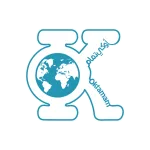Turkey is a distinctive geographic and cultural center with international commercial and political connections, situated at the crossroads between Eastern Europe, Central Asia, and the Middle East. This positioning has made the Turkish language one of the most important languages globally, offering its learners the ability to work in fields such as politics or international trade within the region. If you want to learn a language that opens the door to many unique job opportunities, you should study Turkish Language and Literature.
Turkish language and literature specialty
The study of Turkish Language and Literature involves an in-depth exploration of everything related to the Turkish language, its history, structure, and an analysis of its characteristics and components, alongside a thorough study of Turkish literature from the past to the present.
The Turkish language is one of the oldest languages in the world, having witnessed many eras and civilizations. By studying Turkish, you will learn about ancient and modern Turkish, grammatical and linguistic theories, and modern research and analysis methods. You will also learn the Turkish alphabets used throughout history, such as those used by the Göktürks and the Uyghurs, as well as the Old Turkish alphabet, in addition to Ottoman Turkish and the evolution of the language and its structure up to the current Turkish language. During your studies, you will be able to read texts written in these alphabets in their original form.
As the language of an ancient civilization and one of the oldest languages in the world, Turkish literature contains many valuable literary works. Through the study of Turkish literature, you will get acquainted with ancient Turkish literature and contemporary Turkish literature, as well as popular literature, literature from the Tanzimat reform era, and much more. By studying Turkish literature, you will gain insights into the history of Turkish culture and literary thought among the Turks, explore aesthetic features and contemporary artistic movements, literary theories, and criticism methods. You will also be able to read and analyze many important Turkish literary works from various perspectives.
During your exciting educational journey studying Turkish Language and Literature, you will develop strong analytical skills and enhance your critical thinking based on scientific principles.
Curriculum of Turkish language and literature specialty
The curriculum varies from one university to another, but during your study of Turkish Language and Literature, you will cover some important topics such as:
- Phonetics of the Turkish language
- Turkish language (Turkish vocabulary – Turkish sentence structure)
- Linguistics
- History of the Turkish language
- Turkish literature
- Modern Turkish literature
- Folk literature
- Divan literature
Job Opportunities for Graduates
Graduates of Turkish Language and Literature can work in various fields as teachers of the language and literature or as translators. They can also work in fields such as:
- Media and journalism
- Broadcasting and television
- Libraries and archival institutions
- Creative writing, such as marketing and advertising




